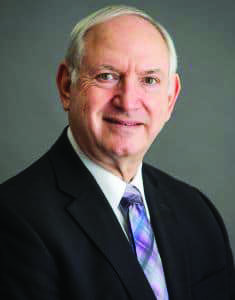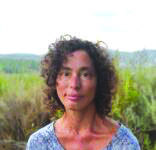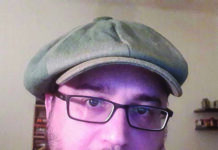
Jeffrey Lasday
On Oct. 27, we marked five years since the shooting at the Tree of Life synagogue. We did this while we try to comprehend the horrors of the recent modern-day pogrom in Israel, where thousands have been massacred or wounded. After three weeks, we see no resolution in sight, only uncertainty.
On Nov. 9, we will mark the 85th commemoration of Kristallnacht, the Night of Broken Glass, the Nazi regime-coordinated days of antisemitic violence. At some point, these events will or have already become a part of world history, but for the Jewish people, they will also be something else — something deeper, more emotion-laden and personal.
For the Jews, these events are or will become part of our collective family memory as a people.
Jewish tradition places a high value on memory, as both a curse upon our enemies and a blessing for embracing Jewish life.
The noted Jewish educator Avram Infeld insists that there is no such thing as Jewish history.
According to Infeld: “Jews don’t have history, we have memory. While history is about what happened in the past, memory is about how that past drives our present and our future. If history is prose, then memory is poetry.”
Infeld differentiates history and memory by defining history as “knowing what happened in the past and memory as asking how does what happened in the past impact on who I am today?”
Another way to differentiate between history and memory is that history is cold, impersonal and something that happened to others in a distant past. Memory, on the other hand, is emotional, deeply personal, and something that happened directly to me, to my family, to my people.
History focuses on what was. Memory, on the other hand, directs us to the future. We remember what we value. Memories provide both aspiration to what could be and to what should never again be allowed to happen.
In Deuteronomy 24:18, we are commanded to “Remember that you were slaves in Egypt and the LORD your God redeemed you from there.” At our Passover seder, we reenact the going out of Egypt and remember the going out as if we were there. We remember the bitterness of slavery, and so we should not enslave others or allow ourselves to be enslaved. We remember what it was like, what it is like, to be strangers in a strange land and so we envision and work towards a future where all are accepted.
What comfort, what response can Jewish wisdom offer to these senseless tragedies? The lessons of memory.
In Deuteronomy 25:17-19, the Israelites are specifically commanded to “blot out the remembrance of Amalek from under heaven for what Amalek did to them as they were coming out of Egypt.”
On the holiday of Purim, Haman, the evil villain who planned to exterminate the Jews, is described as “Haman the Agagite” in the Megillah (scroll) of Esther, thus linking him to Agag, king of Amalek. We are commanded to hear every word of the Megillah, yet we also make noise to blot out his name from history. Paradoxically, we are commanded to remember Haman so that he can be forgotten.
On Passover, the Haggadah tells us, “In every generation, they stand up against us to destroy us.” We remember that we are a people who have faced relentless persecution, yet we remain strong and our enemies forgotten.
And in the book of Proverbs 10:7, we find, “Let the names of the wicked rot (be forgotten).”
How do we respond to tragedy? By blotting out evil. We curse our enemies by erasing them from memory. We remember the tragedy. We bless and hold fast to the memories of those who have perished. We use our memories to honor loved ones by aspiring to become their best selves.
For 2,000 years of exile and persecution, we remembered who we were and where we came from. These memories provided us with values to live by and a future vision of returning to Eretz Yisrael. Our collective Jewish memory sustained us for 2,000 years and enabled us against all odds to return to our homeland.
The Jewish people live, and the Nazis have perished.
Israel and the Jewish people will be thriving, long after Hamas is a distant memory.
Those lives lost in the shooting at the Tree of Life synagogue will be remembered and cherished, long after the perpetrator’s name has been forgotten.
Jeffrey Lasday is the senior chief of external affairs of the Jewish Federation of Greater Philadelphia.






